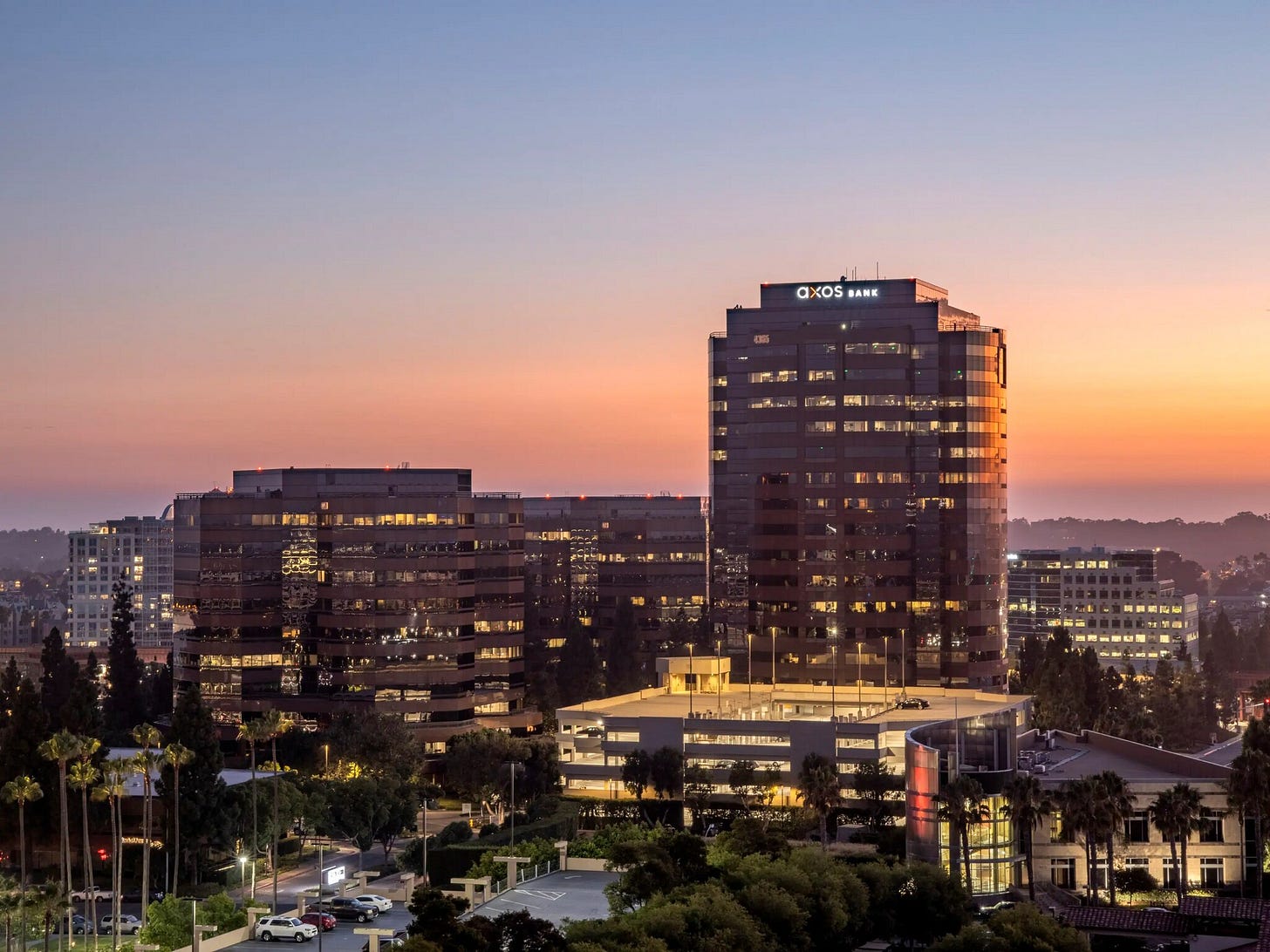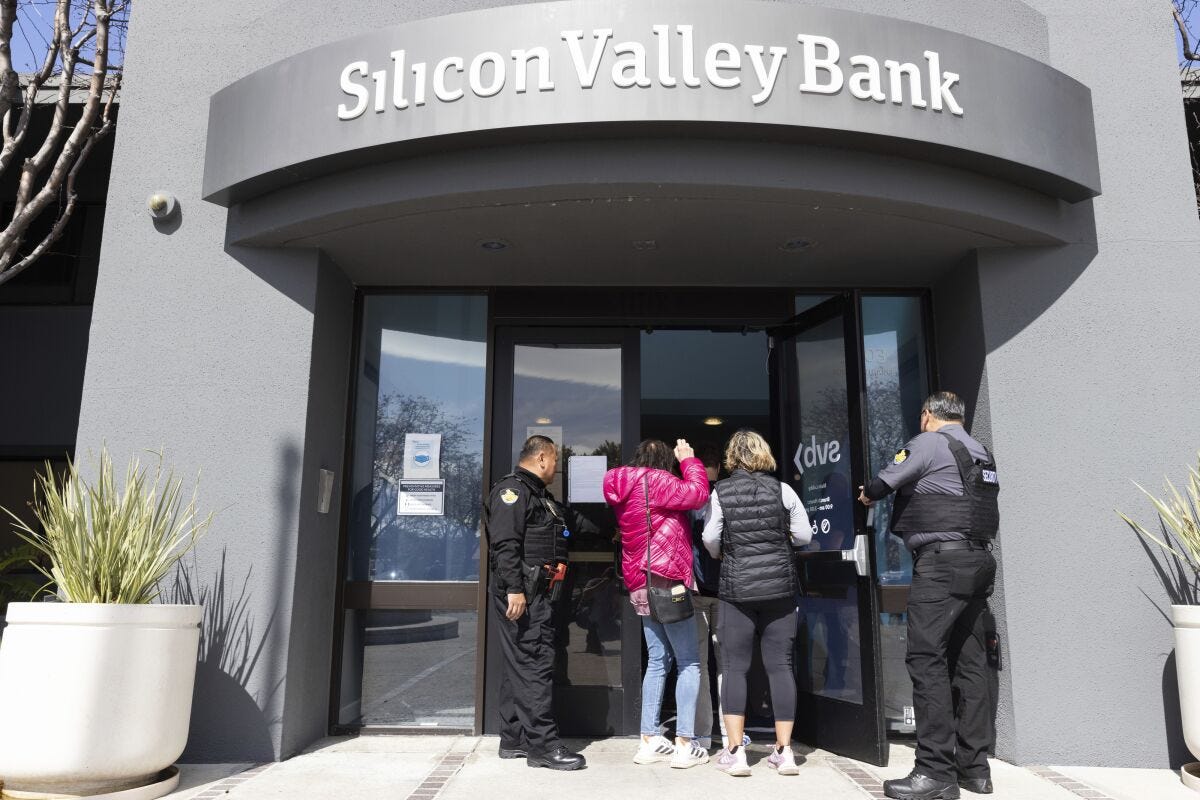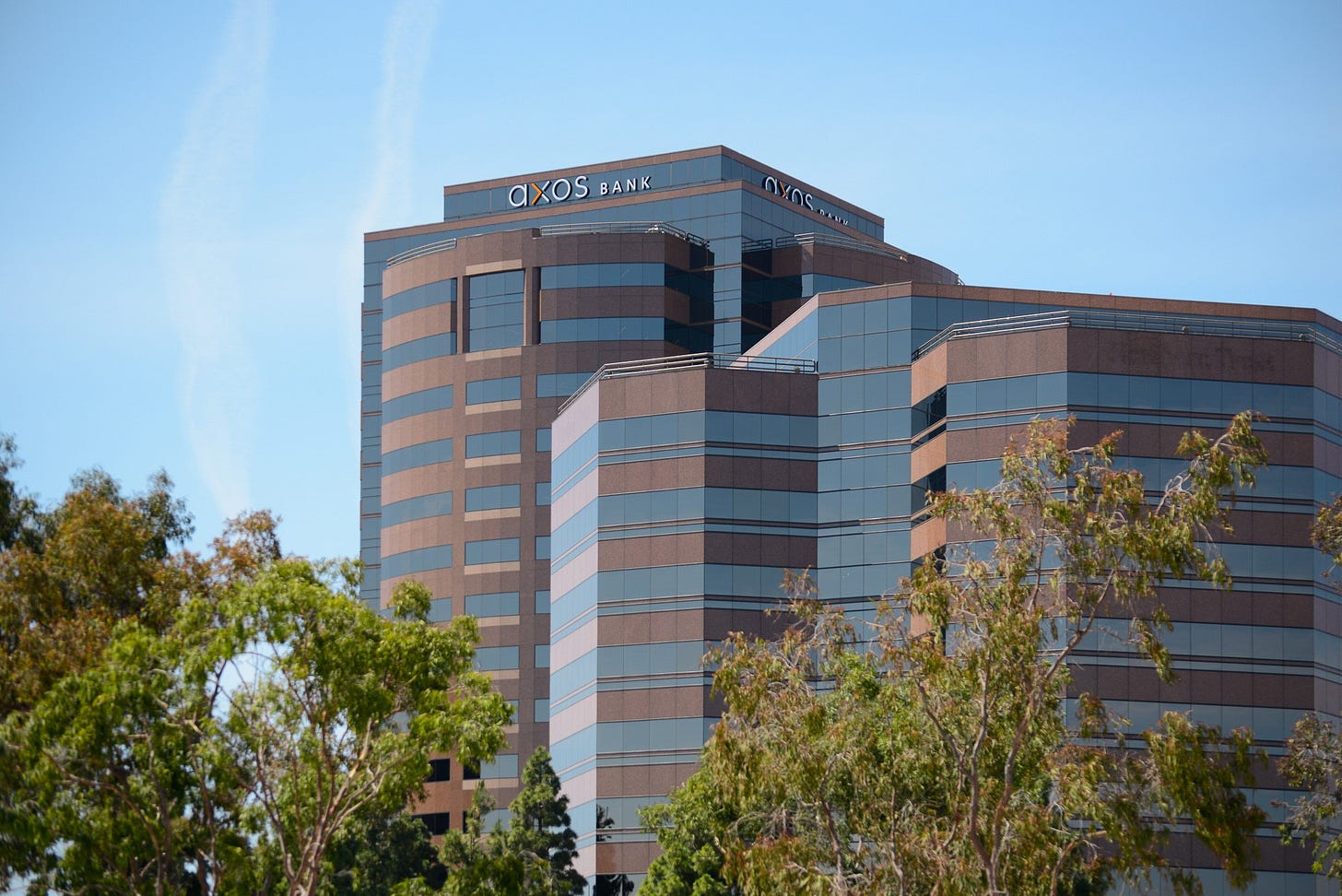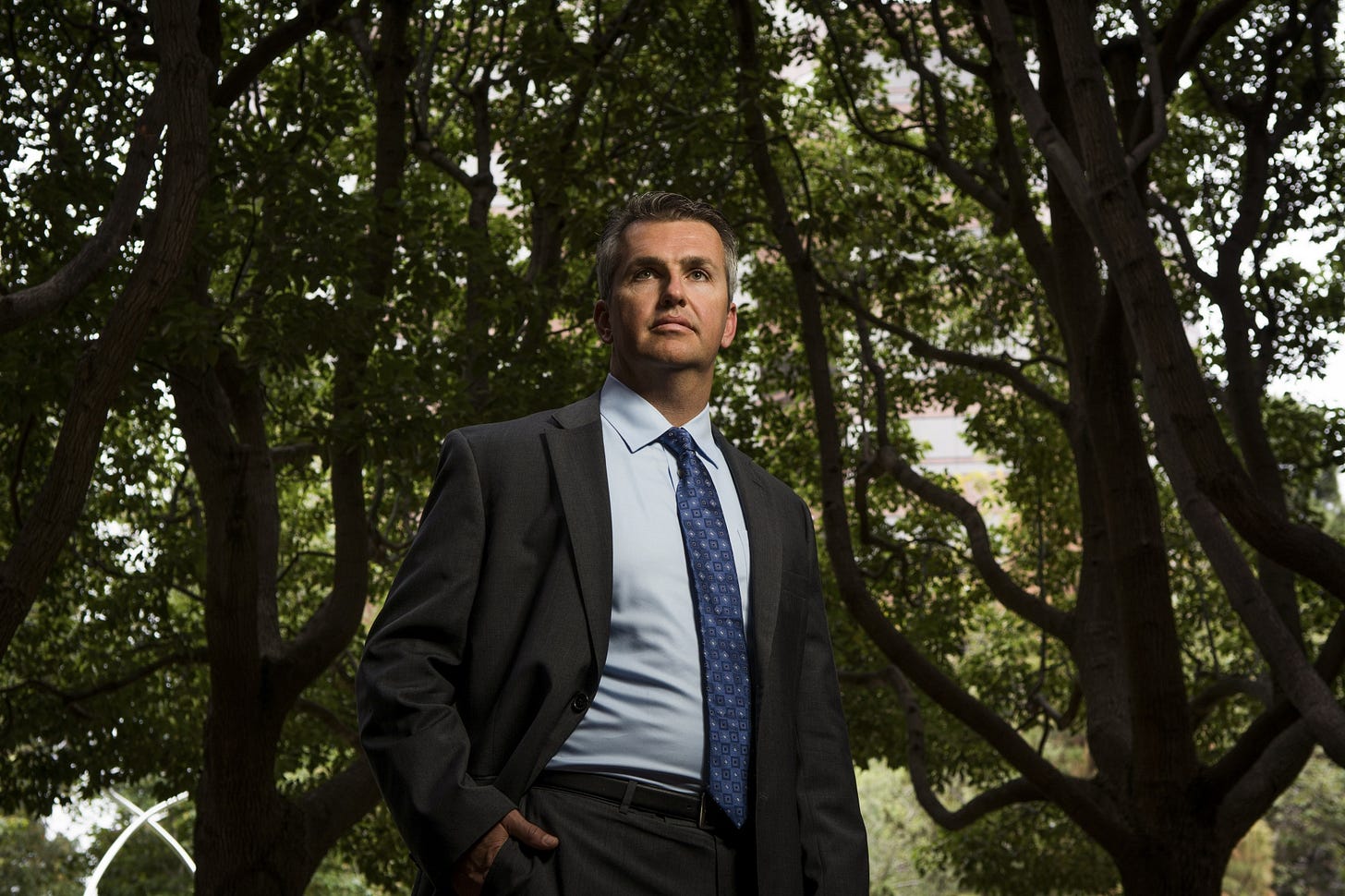Axos Bank Founder Explains Silicon Valley Bank's Unraveling
An interview with Gary Evans, co-founder of Axos Bank discussing the San Diego banking industry, bank runs, and taking an internet-only bank public.
SD Founders is a weekly newsletter that breaks down the business and money in San Diego. If you are not already a subscriber, sign up and join hundreds of others who receive it directly in their inbox each week.
Gary Lewis Evans is a successful banking founder and advisor based in San Diego.
He is the co-founder of Axos Bank, formerly known at BOFL Holdings, where he served as its chief executive officer and president for nearly a decade.
An internet banking pioneer, early adopter of emerging technologies, Evans brings a unique perspective on business philosophy, banking and life.
We discussed what can be learned from Silicon Valley Bank collapse, the history of bank runs, and his journey co-founding one of the most influential banks in the U.S.
Please enjoy this interview.
High-Level Overview
Founded in 2000, Axos Bank is a savings and loan bank based in San Diego.
What makes it special? Born at the height of the dot-com bubble, co-founders Gary Evans and Jerry Englert launched an internet-only bank with $14 million in startup capital, and turned a profit in 14 months.
A publicly traded bank ($NYSE: AX), the stock price has increased 10-fold, largely due to the leadership of its CEO Greg Garrabrants and the bank’s loan strategy.
Axos Bank manages over $18 billion in assets and has more than 1,000 employees.

Founding Story
Gary Evans left his position as president of La Jolla Bank in 1996 to start working on what would later become known as Axos Bank.
Partnering with Jerry Englert, the founder of Del Mar Bank, the duo introduced a digital-only banking approach in the early 2000s.
Launching on July 4th, the banking startup raised $14 million from investors, the digital bank reached profitability in 14 months.
Fast forward six years later, Bank of the Internet USA went public on the New York Stock Exchange with the stock ticker BOFI in 2005.
“The aim was to give Americans the freedom to take care of all their bank business from home — even on a national holiday,” Gary Lewis Evans, co-founder of Bank of the Internet USA wrote in a statement.
We talked about:
Thoughts on the Silicon Valley collapse
The history of banks runs in the U.S.
Taking bank of the internet public
Retirement in San Diego

Q: What was your reaction when you heard the SVB news?
It was Sunday night, after hearing the news.
I reached out to Axos Bank’s President and CEO Greg Garrabrants.
He was working in the office on a Sunday night, which was not a common thing.
His finance execs was with him too, they were working on what would happen next.
Overall it was great to see that they took the right steps, they did a great job to get the word out that they were still insured — they were on top of it.
This should have never happened, but now a bunch of rich guys in Silicon Valley will be bailed out by the government, again.

Q: How does this bank run compare to others in the past?
To give you some history, bank runs have existed since the early 1930’s — it was not uncommon to have a bank run.
For example, Bank of Italy in San Francisco which later became Bank of America, experienced a bank run in Sacramento.
To stop the bank run, the chief executive hired a pilot and flew out to the branch.
He then went into the bank and dumped a huge pile of money in the middle of the floor and asked if anyone still wanted to close their accounts.
Everyone calmed down and left. Why? They saw that the bank still had money.
It could have been a disaster and spread like wildfire, similar to Silicon Valley Bank.
Q: What was it like taking Axos Bank public?
We did an initial public offering in 2005.
Hambrecht & Co., a San Francisco-based investment firm helped us with our investor roadshow that March.
It was a Dutch auction, meaning people could bid any amount they wanted.
It was a fascinating program. We raised over $30 million using the Dutch auction method, which was about $10 million more than we expected.
It was great, it went really well.
Q: You resigned from CEO two years after going public, can you walk me through that moment?
We went into a tough period a few years after going public.
I was really concerned with the real estate market and the direction it was headed.
The board thought I wasn’t doing enough, we had our issues. I decided it was best that I step down. That’s when they brought Greg Garrabrants onboard.
He was the right person for the job, I enjoyed working with him several years later.

Q: The 2008 financial crisis was a challenging time, can you talk about how the bank navigated that?
During the financial crisis, we cleaned up the market, and were well positioned.
People were forced to sell, which allowed us to acquire the safest loans in the world.
From wall street, from banks, from all over the country — we hardly had any losses.
I’ve always done good in bad markets, it’s weird.
Q: What’s the lesson from SVB’s Collapse?
The problem at Silicon Valley Bank is that the majority of accounts were uninsured.
Regulators need to do a better job with the information that they have.
They should have seen this coming. Almost all of Silicon Valley Bank’s growth came from uninsured accounts — it was a huge red flag.
Growing fast is always hard for a bank, that kind of growth encourages banks to make loans quicker, which can lead to making bad loan decisions.
The lesson is: growing too fast can be risky, and the right structure is needed.
Q: How are you spending your retirement in 2023?
He laughed.
I’ll retire when I’m dead. I work seven days a week. I love what I do.
I’m currently a director at CyberCatch, a local company that just went public on the Toronto stock exchange.
I’m always learning new things and looking to solve complex problems. I’m very lucky.
Know someone who would be great for my next interview? Nominate them here.
Disclaimer: SD Founders is provided for informational purposes only and should not be construed as legal, business, investment, or tax advice. You should always do your own research and consult advisors on these subjects.
Feedback helps improve SD Founders. How did you like this week's newsletter?








